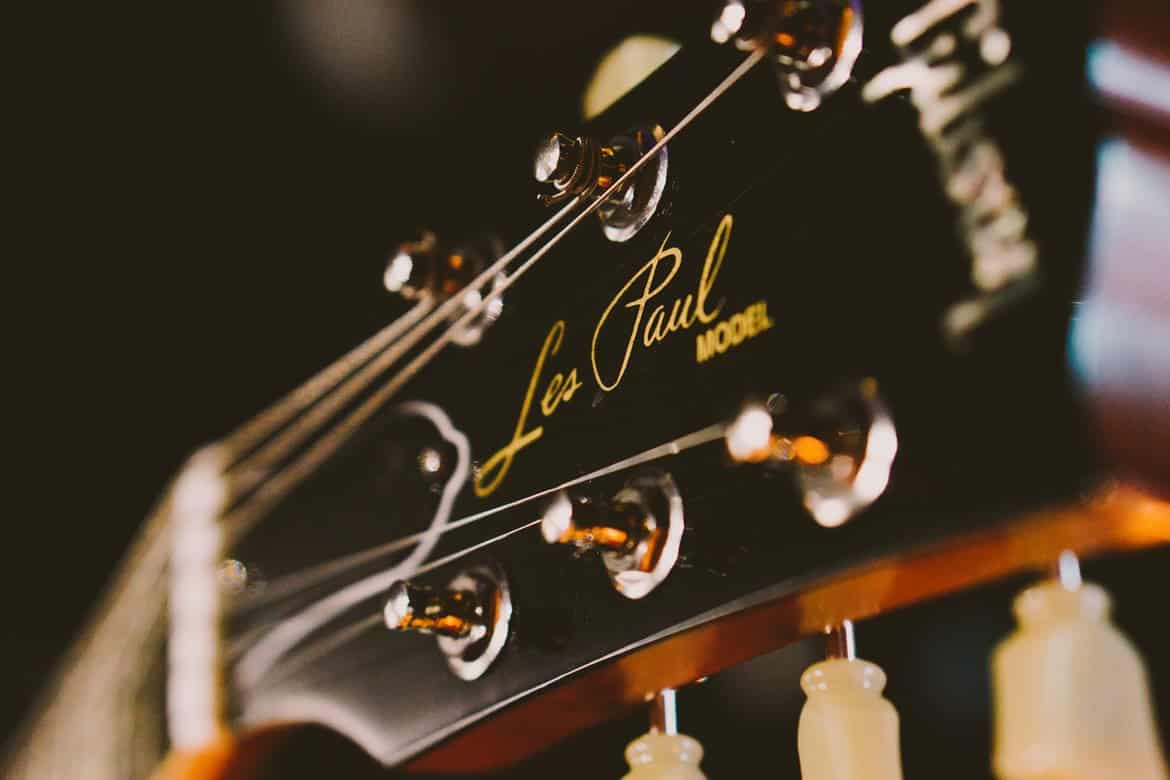Some people treat their pets as their sons and daughters. Musicians do the same, but with their instruments.
Just think about it. If you have a quality guitar, you want to protect it from any harshness of the exterior world.
The problem comes when it is time to go out with it.
You start doubting and creating catastrophes in your head.
“Should I take the guitar with me? Wouldn’t it be better if I guard it in a trophy cabinet and never EVER take it out?”
Having your guitar stolen or damaged is always a possibility when taking it out from the safety of your home. However, it will depend on your tolerance to risk whether to store them as a collectible item or take them out with you. For the latter, keeping them close to you and a heavy-duty case is advised.
I’m fully aware this is a scary situation, but fears are not always facts.
Of course, there is a real danger, but also ways of preventing them from happening in the first place.
Therefore, you’ll find in this article all you need to consider before going out with your expensive guitar.
Hope you find it useful!
Risks of taking your expensive guitars to a gig
The dangers of taking an expensive guitar to a gig are many.
Bear in mind, this is not to get you paranoid or to scare you more than it is necessary.
Simply take them as possibilities, and take necessary actions to prevent them from happening.
First of all, you run the risk of being stolen.
An expensive guitar could be re-sold at an expensive price, which makes it a juicy target for thieves.
Although, to be honest, any instrument can call the attention of a thief or a mugger.
The real issue lies in the fact that you are losing an expensive instrument, and not a cheap one. It will be harder for you to buy yet another big-budget guitar.
Also, your guitar could get damaged in public transport or even during a live performance.
Public transport such as the subway tends to be packed with people. It will not be strange to find a broken knob or a separated tuner peg once you get off the vehicle.
The guitar’s finish may wear off too since constant friction with other humans’ bodies is not appropriate for the guitar’s body.
Regarding live performances, the risks are pretty much the same.
Somebody can steal your gear whenever you are being relaxed (it will vary depending on how secure the venues are).
What is more, the guitar could hit a microphone stand, or collapse with any solid material during the live show. This is more prone to happen if the members of the band are constantly moving all over the stage.
Lastly, we have the weather, which is a hazardous factor as well.
Taking an expensive guitar out makes it possible for rain and humidity to affect it.
After all, water can damage the inner circuits and create spots on its body.
Worst case scenario, it swells up the wood of the fretboard.
Now, you are probably terrified of all the hideous things that could happen to your beloved six-string.
Take it easy, because every problem has a solution.
But isn’t it wiser to prevent the problem instead of fixing it?
Sure it is. Below you’ll find some tips on how to avoid any of the issues mentioned above.
Keeping your expensive guitars safe at a gig
As I said, prevention is key in order not to have regrets.
Of course, there are situations in which there’s nothing you can do.
Do not get obsessed with these issues, and remember you cannot have control over everything.
Just do what you can do. Focus on what you can control, and leave the rest to fate.
With this in mind, here are some tips to keep your expensive guitar safe.
In the first place, let’s focus on how to prevent a robbery.
If a mugger comes with a gun or a knife and asks for the guitar, then I’m painfully sorry, but the best you can do is to give in to the situation.
However, there’s a great number of robberies that happen without violence. On the contrary, you didn’t even see the robber’s face.
Therefore, always have an eye on your guitar. Try not to leave your gear alone for too long, even if you are already on the gig venue.
If you walk down the streets with your guitar, simply carry it firmly to avoid someone snatching it from you.
Finally, evade empty streets or dangerous zones.
If you can, it is better to walk with the rest of the band members.
Conversely, if walking alone is a must, then assume a good body posture.
Have your shoulders straight and your eyes set on the path. It will make you less likely to be perceived as a victim if you are not wandering around looking lost.
Regarding damage precautions, here’s what you should you.
First, invest in a heavy-duty case.
I’m aware that they are expensive, and that not everyone can afford them, but if you happen to have the money, then, by all means, get one of them.
The resistant material absorbs any hit received. Plus, a sealed case keeps water away from the guitar.
With a heavy-duty case, you can say goodbye to scratches and humidity spots.
Second, and this one applies to those who cannot buy a heavy-duty case, avoid public transport.
Here’s the thing. You probably want to play live with your beautiful, expensive guitar.
You want it cause it sounds fantastic thanks to its quality.
After all, it cost you so much money. It would be a shame to keep it guarded in your bedroom.
What to do then? Simply take a taxi or a cab. You’ll reach the gig safely.
Of course, I’m not saying that you must travel in a private vehicle every time you rehearse.
Take it as an alternative, and use it on very specific and special occasions.
Should you take your expensive guitars to band practice?
When rehearsing with your band, it is almost impossible that someone takes your gear away from you.
You are in a closed environment, and it’s easier to keep an eye on your instrument.
Plus, it is more likely to be robbed by a stranger rather than a member of your own band.
The issue is, in fact, not the practice session itself.
The real threat is, once again, the outside world.
Someone can steal your instrument on your way to the rehearsal room, or a heavy rain catches you unprepared and gets your guitar soaking wet.
The rehearsal itself is not dangerous, but the journey from point A to B could be.
Should you take your expensive guitars to a gig?
Ultimately, if you bought a quality guitar, then you are probably expecting to exhibit it to the audience.
Not merely because of its wonderful looks, but also for the quality of its sound, and the overall feel.
So, this means that you already know the answer to this question: a solid yes.
Sure enough, you want it to be safe, and to know the dangers of a live performance.
In a gig, you might find more risks than on a practice meeting.
You cannot let your guard down before or after playing, and you’ll probably be stiffer during the show, so you avoid collapsing with your bandmates.
All in all, just be careful. Expensive guitars should be handled with extreme caution.
With proper safety measures, you are bound to experience a fulfilling show thanks to your favorite guitar.
Is it worth it getting a beater guitar for band practice?
An alternative to taking out the most expensive guitar is to have a backup instrument.
Now, this auxiliary guitar idea has both advantages and disadvantages.
Having a cheaper, second-class guitar is an advantage because it makes it less painful if it gets robbed or beaten up. In fact, the guitar’s very nature is to be the “beater” instrument.
A scratch or two is nothing if the guitar already has dozens of them.
If we focus on disadvantages, consider the following: you might get used to learning the songs with it.
This makes it harder to get comfortable playing with the other, more expensive guitar, especially if they are of two different models.
Seems like a futile detail, but it is not. The feel of the instrument is a relevant aspect.
More important still, is that the mediocre guitar will sound half as good as the expensive one… sometimes even less.
This can affect both rehearsals and live performances.
Regarding rehearsals, you won’t sound as you are expecting to sound.
In other words, the results of your practice will not be satisfactory enough, since the sound quality will make the songs sound different.
Concerning live performances, the issues are similar.
Take the alternative guitar to the gig, and the performance will be mediocre.
The final decision, then, is yours.
Would you prevent accidents with a second-hand guitar or stick with the original till the end?
Can you insure your guitars?
If your car gets stolen, or your house catches on fire, there are insurances that provide money for your losses.
This leads to a question: are there any instrument insurances? The answer is yes, there are!
They can be insured under homeowners or renter insurance.
The price will vary depending on the program or company.
However, the general price will go from $150 to $400 a year.
The numbers change according to the instrument and the policyholder.
Is it worth it having expensive guitars just to play at home?
The worth of playing with expensive instruments on your own is given by yourself.
That is to say, if it makes you happy, then go for it.
See, it is not a must to show off a beautiful instrument.
You live 24/7 with yourself, so it is not stupid to have an expensive guitar that only you get to see and hear.
If anything, you can show it off to your friends or family members whenever they pay you a visit.
Lastly, think about the reasons why you get an expensive guitar.
If the instrument has a good quality, then the sound will be of high quality as well.
Maybe you bought such a guitar because you want to practice with high-quality sound.
Also, what if you have a home studio in your bedroom, garage, or basement?
Wouldn’t it be nice to record with a first-rate guitar?
Food for thought.
Why a workhorse guitar might be a great investment
A workhorse guitar is like the American Professional line from Fender.
These guitars are standardized and are a good choice for live performances.
However, if anything happens to them, it is still possible to find an identical guitar like the one you lost, without paying high prices for it.
Also, these guitars are very versatile regarding genres and style.
Maybe a workhorse guitar is a solution to this problem.
A perfect balance between price and quality.
Hope this information has helped you clarify all your doubts.

Hello there, my name is Ramiro and I’ve been playing guitar for almost 20 years. I’m obsessed with everything gear-related and I thought it might be worth sharing it. From guitars, pedals, amps, and synths to studio gear and production tips, I hope you find what I post here useful, and I’ll try my best to keep it entertaining also.





